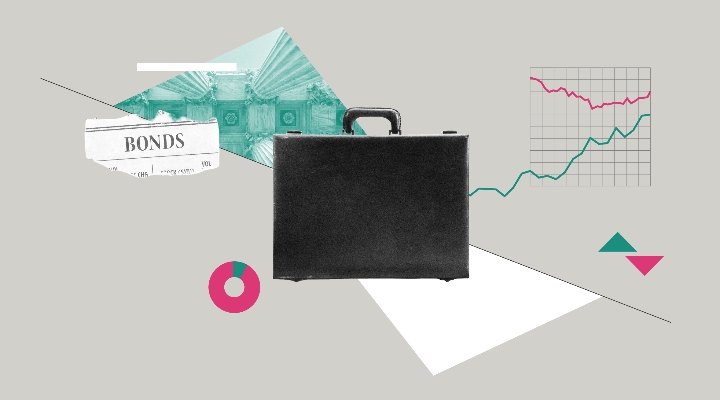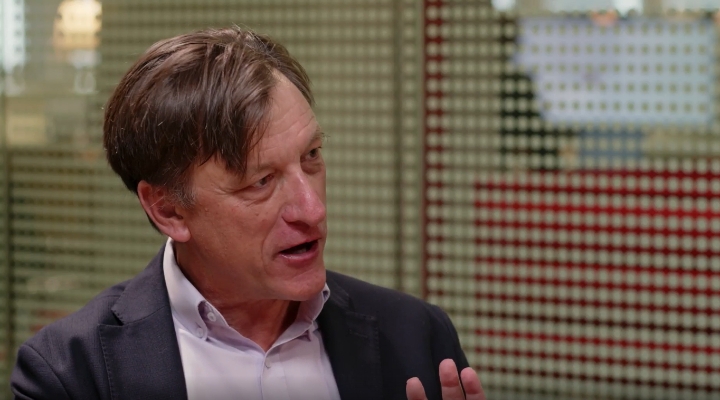Kate Lin: Welcome to Morningstar. Investors have been pouring money into investment grade corporate bonds, enticed by the most attractive yields seen in a decade.
However, some of the hopes of capturing better total returns from fixed income are facing a test, as developed economies are tipping into economic slowdowns.
Joining me today to make sense of the global credit market and how the Fed’s actions impact them is Adam Whiteley. He's the head of global credit at Insight Investment for BNY Mellon Investment Management.
Hi, Adam. The market has a view that recent economic data has given the Fed plenty of room to have interest rates steady through this year and into the next. What is your view?
Adam Whiteley: We think that the Federal Reserve is now essentially done with its policy rate tightening, but we wouldn't expect that there would be easing policy early in next year. And that's because there are still concerns around the core elements of inflation where we strip away the more volatile energy and food components. But also actually the recent strength that we've seen in the economic growth data, meaning that they don't have the same need to ease policy in order to ensure that the economy continues to remain robust.
Yields on IG Bonds Are at its Highest in 15 Years
KL: Right. Given that, where do you see the best opportunities to take credit risks and what is the reason for that?
AW: Looking at the all-in yields available within investment grade credits, they're at levels that we've not seen really for 15 years. And, that becomes very compelling to get a single A average rating with a yield that is above 6%. For the credit spread components, we actually think that it's fairly valued and that spread component is the compensation for taking corporate default risk.
Therefore, we're much more focused on relative value opportunities where the increase in volatility that we've seen in both economic data but also markets is creating a lot of opportunities for active managers. And right now our favorite regional exposure is actually within Europe where there's a much higher recession probability priced than within the U.S. And on a forward-looking basis, we don't see the risks as being materially different.
Investors Compensated for Some, But Not All Risks
KL: Turning to the risk side, a possible recession could spell trouble for credit as corporate profits could come under pressure raising the risk of downgrades, or worse, defaults. So, do you think now investors in investment grade bonds are compensated for the risk associated with lower earnings and higher cost of capital?
AW: For investment grade, historically at least, defaults haven't really been a relevant consideration. That's much more so for the high-yield part of the market. Focus just on the credit spread components of corporate bond yields, they're around their long-run averages. So we can say that you're compensated for some but not all potentially of the negative scenarios that we can think of from here.
But for high yield, we're certainly much more cautious in an environment of lower earnings and higher cost of capital. You would think that the more leveraged capital structures, of which high yields are exactly that, would be facing more vulnerabilities. That is likely to mean a pickup in default rates if the pace and potentially the peak of those default rates is not as high as we might otherwise think because of the strength of the starting point for corporate balance sheets.
China's Debt Crisis Contained?
KL: Lastly, any conversation about fixed income nowadays wouldn't be complete without talking about China. Do you see any signs of its debt trouble in the property sector spilling over to other markets?
RW: We don't see any signs so far of a spillover effect happening either into broader emerging markets or into the developing world. China is currently experiencing issues within the property sector, which have been well documented, but by and large, the lending to that sector has all been done by the domestic Chinese institutions.
What is strange about this particular cycle is that if you were looking for big debt imbalances, we really struggle to find them within the private sector. But by contrast, there's certainly been a huge accumulation of debt within the public sector and governments where they've been embarking on very big fiscal expansions. And actually, if you think about what environment they would like to get their debt more under control, it arguably is a more inflationary environment such that they can inflate away some of those debts that have been accumulated.
KL: Thank you so much for your time, Adam. For Morningstar, I'm Kate Lin.












.jpg)
















